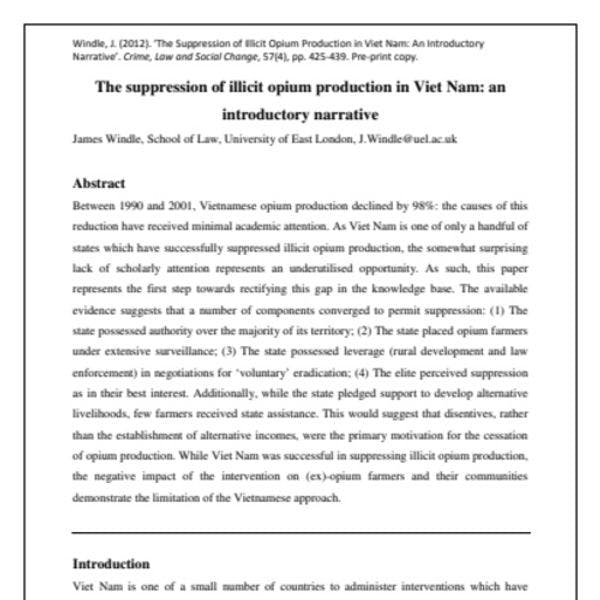The suppression of illicit opium production in Vietnam: An introductory narrative
Between 1990 and 2001, Vietnamese opium production declined by 98%: the causes of this reduction have received minimal academic attention. As Vietnam is one of only a handful of states which have successfully suppressed illicit opium production, the somewhat surprising lack of scholarly attention represents an underutilised opportunity. As such, this paper represents the first step towards rectifying this gap in the knowledge base.
The available evidence suggests that a number of components converged to permit suppression:
- The state possessed authority over the majority of its territory;
- The state placed opium farmers under extensive surveillance;
- The state possessed leverage (rural development and law enforcement) in negotiations for ‘voluntary’ eradication;
- The elite perceived suppression as in their best interest. Additionally, while the state pledged support to develop alternative livelihoods, few farmers received state assistance.
This would suggest that disentives, rather than the establishment of alternative incomes, were the primary motivation for the cessation of opium production. While Vietnam was successful in suppressing illicit opium production, the negative impact of the intervention on (ex)-opium farmers and their communities demonstrate the limitation of the Vietnamese approach.
This introductory narrative has provided much detailed information, however, many gaps exist. The most important revolve around the lack of voice given to (ex)-opium farmers in the literature and the specifics of law enforcement, including surveillance and the role of social pressure. This paper, therefore, presents a foundation for more in-depth investigations into a unique and informative, yet neglected, aspect of source country drug control.
Keep up-to-date with drug policy developments by subscribing to the IDPC Monthly Alert.
